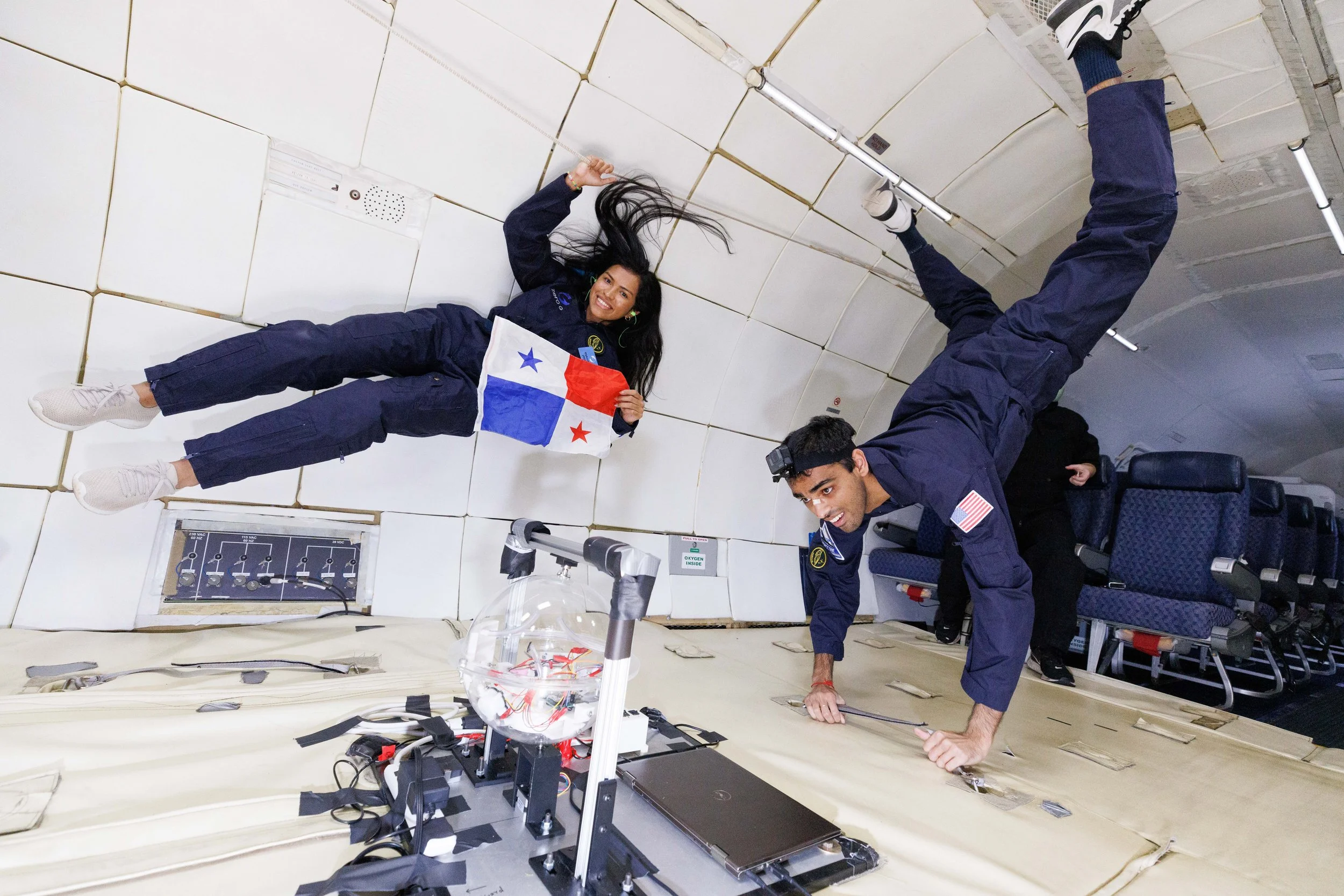Krystel Villarreta holds the Panamanian flag in zero gravity. Credit: Steve Boxall / ZERO-G
A Glimpse of Hope
KRYSTEL VILLARRETA, NASA SPACEAPPS GLOBAL CHALLENGE
“The reward of the young scientist is the emotional thrill of being the first person in the history of the world to see something or to understand something. Nothing can compare with that experience.” This quote by astrophysicist Cecilia Payne-Gaposchkin resonates deeply with the meaning behind why I joined the Horizon 2022 flight and how I hope my presence in this program can be meaningful. I was not the first person in worldwide history to experience zero-g nor understand it or even discover it, but as a young Latin-American STEM student, I felt the same emotional thrill as I experienced it. I took this opportunity as a symbolic act to share it with my whole country and tell my story throughout this journey, for young people or people in general with similar interests to live this experience through mine.
Panama is one of the countries in the Latin American and Caribbean region that invests the least in research and development investing—only 0.08% of gross domestic product (GDP), and this is one of the reasons for the lack of scientific talent (SENACYT, 2021). People with the power to have the final say in decision-making processes tend to believe or invest more in fields that represent more profit for them or show better results. So why not show that science and technology are, indeed, currently bringing great results by advocating the potential that younger generations have and what it brings to the table. Society needs spaces for scientific development, research, and innovation for the generation of knowledge according to the current needs of a region. By sharing my experience nationwide, I hope to bring attention to the scientific field and make this experience as accessible and realistic as possible for others who wouldn’t even dream of something like this happening, as I did, to dream and work for their goals to achieve them no matter the circumstances.
Following the guidelines and all the recommendations provided before the flight by all the Aurelia staff, I was able to have a pleasant experience on my first zero-g flight. As I encountered myself on the plane waiting for the first weightless experience to arrive, I was a little bit anxious about what I’d be able to do and how it would affect me physically. However, as the parabolas went by and I felt the weightless experience, I was able to have fun and enjoy the moment with all the other fliers. Being weightless certainly helps in completing a task more easily and moving in a more flexible way by doing movements that you certainly wouldn’t do as easily in gravity.
Seeing all different people with different backgrounds and goals coming together in one mission with an experience in common, made my heart full of joy and excitement. Diversity and inclusion in all ways possible are key for society and for you as a person to understand the world and to change your perspective on things. Hearing all the stories and takeaways of other fliers at the moment, their passion for what they do and how they do it in their daily lives definitely left an impact on me and inspired me to become a better person in order to be a great professional in the future in the path I decide to take.
The news of me going as a NASA’s Space Apps representative appeared last week in all national media: newspapers, TV, social media, etc. Reading and hearing positive messages from people I know and ones I don’t know personally has certainly proved that seeing, reading, or hearing this good news has given them a glimpse of hope that younger generations are doing things right and opportunities like this can be presented in life.
Learn More
Flight Media
Krystel Villarreta floats in zero gravity. Credit: Krystel Villarreta


